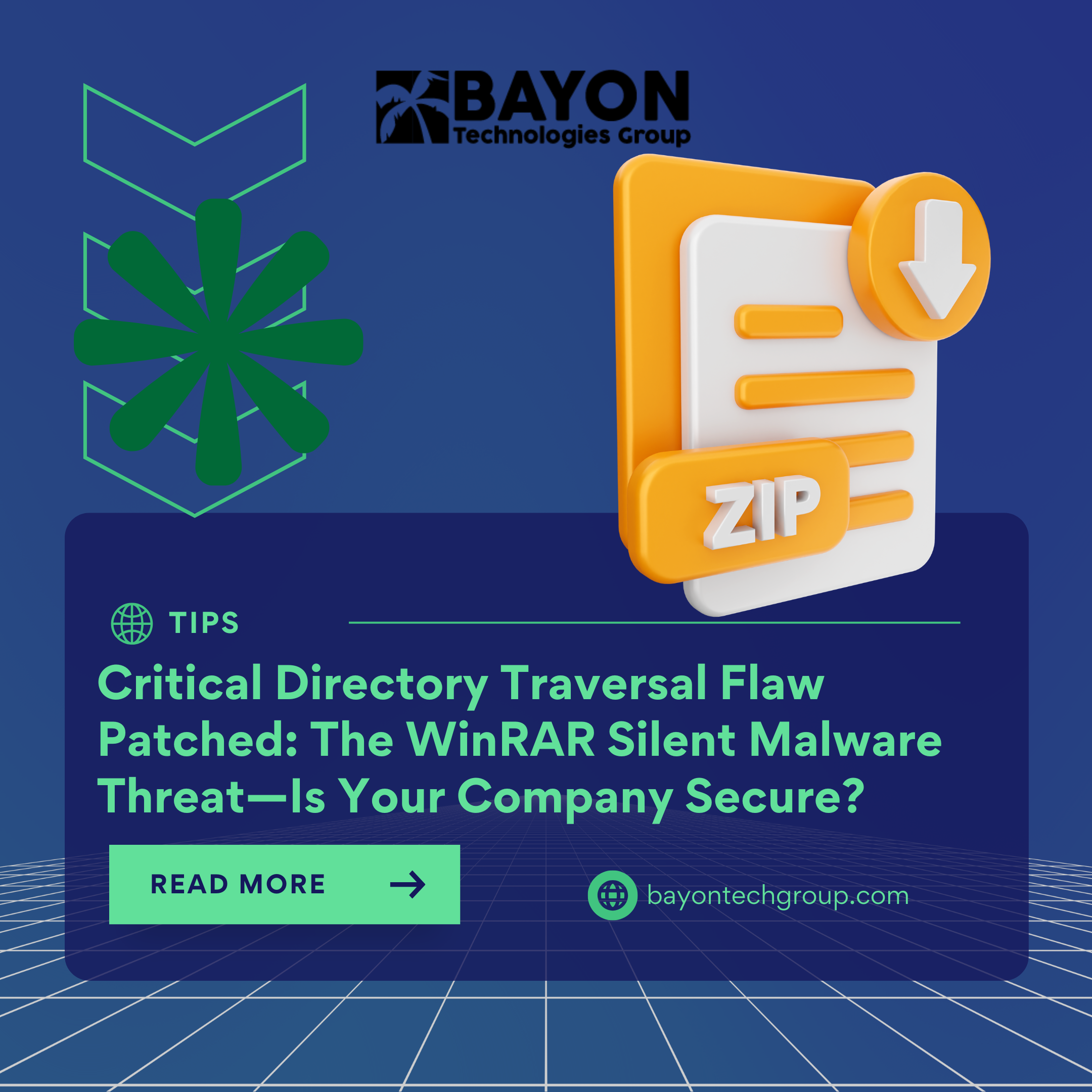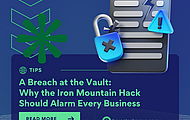Critical Directory Traversal Flaw Patched: The WinRAR Silent Malware Threat—Is Your Company Secure?

More than 500 million people worldwide utilize WinRAR, which had a serious vulnerability (CVE202436052) that allowed hackers to covertly install malware while victims opened seemingly innocuous archive files. Through a deceptively simple attack vector, this directory traversal vulnerability, now fixed in version 7.00, put firms at serious risk.
How the Exploit Worked
- The Creation of a Malicious Archive
Hackers created ZIP/RAR files with altered paths, such as .... WindowsStartupmalware. exe.
- Quiet Installation of Malware
Files skipped security checks and installed themselves in system directories when retrieved.
- Mechanisms of persistence
Malware that self-starts upon bootup, allowing for:
- Remote system management
The stealing of data
- Ransomware implementation
Actual World Impact: The BlackBasta ransomware was delivered to an accounting business's network by attackers who pretended to be shipping invoices, resulting in more than $200,000 in damages.
Why This Vulnerability Was Critical
- No User Warnings: Victims saw only legitimate-looking extracted files.
- Evasion Capabilities: Bypassed 70% of endpoint security tools (Black Hat testing).
- Supply Chain Risks: Compromised contractors transmitted infected archives to clients.
Industries at High Risk
- Finance: Fake "transaction archive" attacks
- Legal: Malicious "case file" bundles
- Healthcare: Infected medical record archives
5 Urgent Mitigation Steps
- Update Immediately
Upgrade to WinRAR 7.00+ (verify via Help > About).
- Restrict Archive Software
Block non-essential tools like WinRAR on corporate endpoints.
- Sandbox All Archives
Use virtual environments to inspect suspicious ZIP/RAR files.
- Enable File Extension Visibility
Ensure Windows shows full extensions (e.g., .exe not hidden).
- Scan with Heuristic Tools
Deploy next-gen antivirus with behavior-based detection.
The Bigger Picture: Software Supply Chain Threats
This incident highlights a dangerous trend:
- 62% of businesses use outdated software with known vulnerabilities (SANS 2025)
- Archive files are the #2 malware delivery vector (after email)
- State-sponsored groups increasingly exploit "trusted" tools
Bayon Technologies Group: Secure Your Systems Against Silent Threats
Proactive defense is necessary against legacy software vulnerabilities, such as WinRAR's vulnerability. We provide:
✅ Automate Patch Management: Make sure all endpoints receive important updates.
✅ Advanced Endpoint Protection: Use AI-powered EDR to stop file-based malware.
✅ Vulnerability Scanning: Instantaneously identify obsolete software.
✅ Cyber-Drills for Employees: Model phishing assaults using archives.
Don't let a compressed file compress your business operations.
‹ Back







